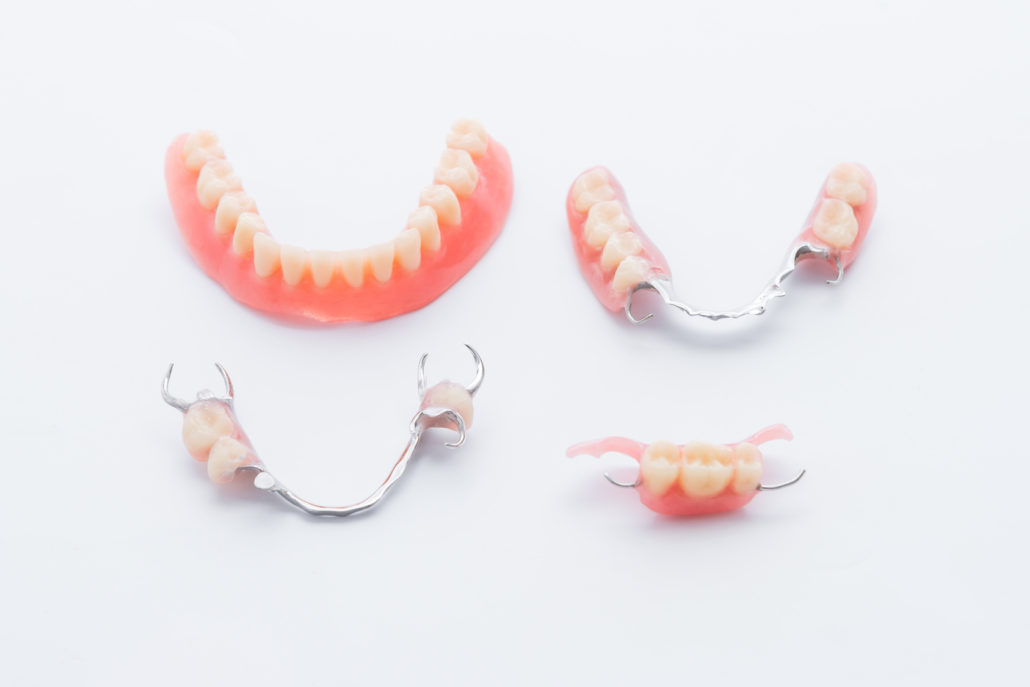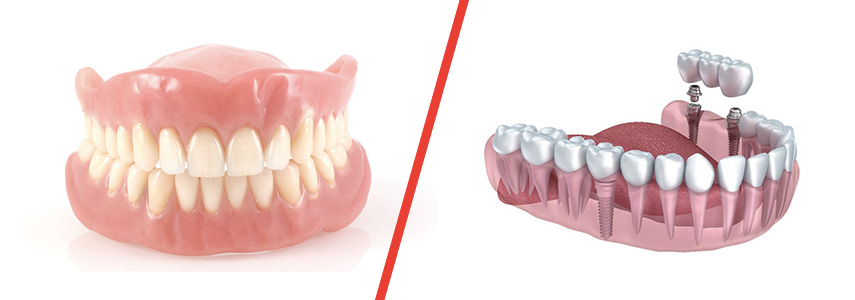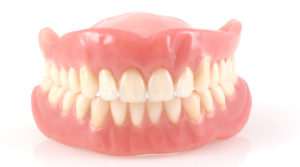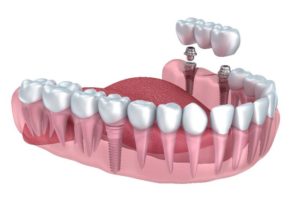Dentures or skeletons, technically mobile prostheses, and implantology are the two main alternatives to tooth loss.
When faced with the need to replace one or more teeth, it is very likely that you will enter a state of agitation and anxiety: how much will it cost? Will I solve the problem permanently? Is the mobile prosthesis or fixed teeth better?
Let’s try to answer these questions, focusing on possible alternatives.
Features of mobile prostheses
The main feature of the mobile prosthesis is that it is removable, be it a denture (for the replacement of all the teeth of an arch) or a skeleton (for the replacement of some teeth). The denture, as suggested by the imagery of the classic glass on the bedside table, can be removed and repositioned according to the need and times of the day.

The structure of a denture is made up of a resin flange (as if it were a fake gum) that is applied to the tissues of the mouth and the false teeth applied to it that replace the missing teeth.
The skeleton is similar to the denture but replaces only some teeth; the presence of some metal hooks is necessary to make the prosthesis support the adjacent teeth.
Mobile prosthesis: the pros and cons
Advantages offered by the denture
- Cost of mobile prostheses. Cost is certainly one of the advantages of the mobile prosthesis. Mobile prostheses actually have a lower cost than implantology.
- Application without surgery. The mobile prosthesis is applied without the need for surgery, this obviously can be considered an advantage for all those patients suffering from dental phobia.
Disadvantages of the mobile prosthesis
- Pressure on the gums. In addition to the support of the hooks, the real support of the mobile prosthesis is represented by the gums. It can therefore happen that they are often subject to inflammation or infection, causing discomfort to the patient.
- Aesthetics of the smile. One of the cons is certainly the aesthetics of the smile. When the skeleton replaces a partial part of the dental arch, it needs metal hooks to be applied. The hooks, however, are visible in the patient’s mouth and obviously the smile will not be like the natural one.
- Bone resorption. The mobile prosthesis, being not anchored to the bone, does not stop the process of bone resorption, i.e. the gradual thinning of the bone that occurs following the loss of the teeth.
- Chewing. Another cons is the poor stability of the mobile prosthesis. During chewing, in fact, slight movements can be felt which can create discomfort.
Pros and cons of implantology
Advantages offered by implantology
- Fixed and stable teeth. One of the pros of implantology is certainly the possibility of having fixed and stable teeth, without any difference with your natural teeth.
- Interruption of bone resorption. The characteristic of implantology is the possibility of fixing the prostheses by screwing them to the screws that are inserted into the maxillary or mandibular bone. The vines take the place of the root of the tooth, in this way it is possible to block the progress of bone resorption.
- Natural smile. The implantology intervention allows you to find a smile very similar to the natural one, with a performance over time that can be longer than the duration of a denture.
Disadvantages of implantology
- Surgery for implantology. Although the sophisticated techniques of modern dentistry have reduced pain and intervention times, implantology always remains surgery.
- Implantology cost. It is useless to hide that an implantology intervention has a higher cost compared to the mobile prosthesis. Obviously it is not possible to make a comparison only in terms of cost, it is important to also pay attention to the advantages. Paying attention to all the points listed above, it is easy to deduce the fact that implantology is an investment. Unlike the dentures, in fact, you can have a natural smile, trouble-free chewing and fixed teeth, with a longer life span.











